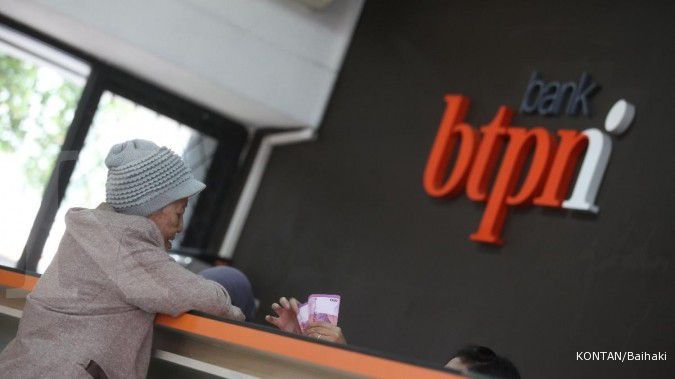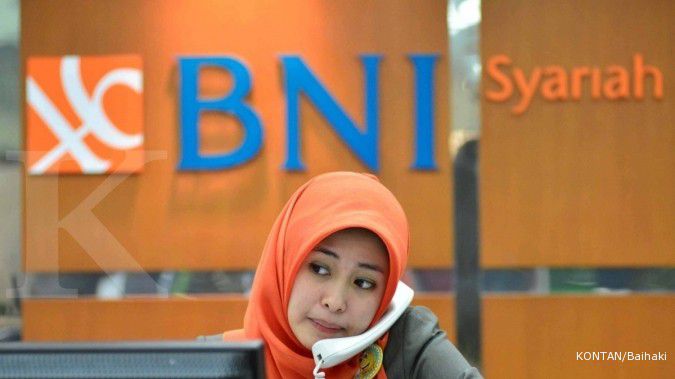JAKARTA. Amid talk of merging banks in the country to boost size and competitiveness in the region, the Financial Services Authority (OJK) has said that consolidation of sharia banks is also needed.At the moment, however, many sharia lenders are not separate entities but rather units that operate within conventional banks.OJK sharia banking department head Edy Setiadi said on Tuesday that the consolidation was expected to take place after all existing sharia business units (UUS) had been spun off from their parent banks.“After the spin-off, we will see the number of BUS [sharia banks] increase to more than 34, but we would like to fix the number at between 25 and 30,” he said on Tuesday.At the moment, there are 11 sharia lenders and 23 UUS operating in the country. Of the 23 UUS, 10 are under the management of commercial banks and the remaining 13 are units of regional development banks (BPDs).The latest data from the OJK shows that their total assets amounted to Rp 242.28 trillion (US$21.03 billion) by the end of February, accounting for 5 percent of the total assets of the banking industry.The new figure would hopefully represent around 25 to 30 percent of the total number of lenders in the future and would result in higher efficiency and competitiveness for the sharia sector, Edy said.“The assets will also grow and we will have higher leverage in the region, similar to the lenders in Malaysia,” he said.He added that one sharia business unit of a commercial bank was ready to be spun off in 2014.The OJK and Bank Indonesia (BI), which together oversee lenders operating in Indonesia, have several times stressed the importance of consolidation in the nation’s banking industry, the most fragmented in the region, with more than 100 banks compared to less than 50 banks in neighboring countries.This has made banks less competitive in the region because assets are spread and not concentrated. Some of the nation’s banks have had trouble expanding overseas due to their relatively small size in comparison to banks in Singapore, Malaysia or Thailand.BNI Syariah president director Dino Indiano welcomed the consolidation plan, but argued that the regulator must promote clearer objectives. “I think it would be best if the consolidation aimed at securing our own turf from the expansion of foreign lenders, rather than us expanding overseas,” he said.So far, Dino added, the sharia banking growth in Indonesia had been satisfactory, with the average rate revolving at around 20 to 30 percent every year.According to OJK data, the sharia sector channeled up to Rp 184.12 trillion in financing in February, a 19.5 percent rise year-on-year. On the funding side, it collected Rp 183.53 trillion, 21.7 percent higher than a year ago.Commenting on possible mergers among sharia lenders, Dino said the ownership issue would be the sticking point. “A majority of the sharia lenders are owned by conventional banks. It will not be easy to find common ground,” he said.A similar opinion was voiced by Achmad K. Permana, the sharia banking director of Permata Bank. He highlighted the possible difficulties arising from the sharia lenders’ various ownerships.Permana, who is also the secretary general of the Indonesian Sharia Banks Association (Asbisindo), said that Permata planned to begin exploring all possible spin-off options in 2018 for its UUS.Separately, Bank Internasional Indonesia (BII) president director Taswin Zakaria said that it was speeding up the spin-off process of its sharia unit, whose operations account for only 4 percent of the bank’s business. “We want to get it completely away before 2023,” he said.A BI regulation, which was issued last year, stipulates that the UUS must be spun off from their parent companies before 2023.
Consolidation of sharia banks also needed
JAKARTA. Amid talk of merging banks in the country to boost size and competitiveness in the region, the Financial Services Authority (OJK) has said that consolidation of sharia banks is also needed.At the moment, however, many sharia lenders are not separate entities but rather units that operate within conventional banks.OJK sharia banking department head Edy Setiadi said on Tuesday that the consolidation was expected to take place after all existing sharia business units (UUS) had been spun off from their parent banks.“After the spin-off, we will see the number of BUS [sharia banks] increase to more than 34, but we would like to fix the number at between 25 and 30,” he said on Tuesday.At the moment, there are 11 sharia lenders and 23 UUS operating in the country. Of the 23 UUS, 10 are under the management of commercial banks and the remaining 13 are units of regional development banks (BPDs).The latest data from the OJK shows that their total assets amounted to Rp 242.28 trillion (US$21.03 billion) by the end of February, accounting for 5 percent of the total assets of the banking industry.The new figure would hopefully represent around 25 to 30 percent of the total number of lenders in the future and would result in higher efficiency and competitiveness for the sharia sector, Edy said.“The assets will also grow and we will have higher leverage in the region, similar to the lenders in Malaysia,” he said.He added that one sharia business unit of a commercial bank was ready to be spun off in 2014.The OJK and Bank Indonesia (BI), which together oversee lenders operating in Indonesia, have several times stressed the importance of consolidation in the nation’s banking industry, the most fragmented in the region, with more than 100 banks compared to less than 50 banks in neighboring countries.This has made banks less competitive in the region because assets are spread and not concentrated. Some of the nation’s banks have had trouble expanding overseas due to their relatively small size in comparison to banks in Singapore, Malaysia or Thailand.BNI Syariah president director Dino Indiano welcomed the consolidation plan, but argued that the regulator must promote clearer objectives. “I think it would be best if the consolidation aimed at securing our own turf from the expansion of foreign lenders, rather than us expanding overseas,” he said.So far, Dino added, the sharia banking growth in Indonesia had been satisfactory, with the average rate revolving at around 20 to 30 percent every year.According to OJK data, the sharia sector channeled up to Rp 184.12 trillion in financing in February, a 19.5 percent rise year-on-year. On the funding side, it collected Rp 183.53 trillion, 21.7 percent higher than a year ago.Commenting on possible mergers among sharia lenders, Dino said the ownership issue would be the sticking point. “A majority of the sharia lenders are owned by conventional banks. It will not be easy to find common ground,” he said.A similar opinion was voiced by Achmad K. Permana, the sharia banking director of Permata Bank. He highlighted the possible difficulties arising from the sharia lenders’ various ownerships.Permana, who is also the secretary general of the Indonesian Sharia Banks Association (Asbisindo), said that Permata planned to begin exploring all possible spin-off options in 2018 for its UUS.Separately, Bank Internasional Indonesia (BII) president director Taswin Zakaria said that it was speeding up the spin-off process of its sharia unit, whose operations account for only 4 percent of the bank’s business. “We want to get it completely away before 2023,” he said.A BI regulation, which was issued last year, stipulates that the UUS must be spun off from their parent companies before 2023.





